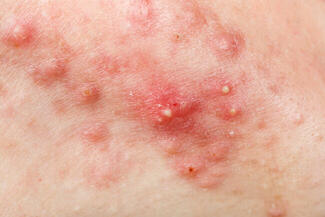TNF Inhibitors Improve Clinical Outcomes in csDMARD-Inadequate Psoriatic Arthritis, Review Finds
A comprehensive review of 25 randomized controlled trials evaluating tumor necrosis factor (TNF) inhibitors in adults with psoriatic arthritis (PsA) has found that TNF inhibitors likely lead to meaningful improvements in clinical disease activity, quality of life, and radiographic progression in patients with inadequate response to conventional synthetic disease-modifying antirheumatic drugs (csDMARDs). However, the evidence on functional improvement and safety was of lower certainty, and no data were available for TNF inhibitor use in DMARD-naïve or biologic and targeted synthetic (b/ts) DMARD-inadequate responder populations.
The review, published in Cochrane Database of Systematic Reviews, included 7857 participants and focused primarily on the comparison of TNF inhibitors to placebo. Among csDMARD-inadequate responders, TNF inhibitors were associated with a substantially higher rate of clinical improvement. At 12 weeks, 37% of participants in the TNF inhibitor group achieved a 50% improvement per American College of Rheumatology criteria (ACR50) compared with 8% of those receiving placebo (risk ratio [RR] 5.63, 95% CI: 3.98–7.96; 14 studies; moderate-certainty evidence).
Minimal disease activity at 24 weeks was also more common in the TNF inhibitor group (32%) compared to placebo (9%) (RR 3.76, 95% CI: 2.39–5.92; 5 studies; moderate-certainty evidence). Additionally, TNF inhibitors demonstrated benefit in reducing radiographic progression, with a mean Sharp/van der Heijde-PsA score that was 0.37 points lower than placebo at 24 weeks (moderate-certainty evidence).
Health-related quality of life also improved. Participants receiving TNF inhibitors had an average improvement of 3.29 points on the Short Form-36 Mental Component Summary, compared to a 2.4-point improvement in the placebo group. The minimal clinically important difference for this scale is 1.7 points.
Improvements in physical function, however, were less certain. The mean change on the Health Assessment Questionnaire was 0.33 points lower with TNF inhibitors, compared to a 0.14-point change with placebo. This outcome met the minimal clinically important difference (0.35 points) but was downgraded to low-certainty evidence due to risk of bias and imprecision.
Safety outcomes showed no difference in serious adverse events between groups (3% in both groups; RR 1.00, 95% CI: 0.70–1.42; low-certainty evidence). However, TNF inhibitors may result in slightly higher rates of withdrawals due to adverse events (3% vs 2%; RR 1.53, 95% CI: 1.01–2.33; low-certainty evidence).
The review authors also noted significant gaps: “We found no studies comparing TNF [inhibitors] with placebo in DMARD-naïve participants,” and similarly, “no studies with b/tsDMARD-inadequate responders.”
For practicing dermatologists, these findings reinforce current guidelines that position TNF inhibitors as a first-line biologic option for patients with active PsA who do not respond to csDMARDs, while the lack of data in treatment-naïve and b/tsDMARD-inadequate responder populations highlights areas for future research.
Reference
Cagnotto G, Bruschettini M, Stróżyk A, Scirè CA, Compagno M. Tumor necrosis factor (TNF) inhibitors for psoriatic arthritis. Cochrane Database Syst Rev. 2025;2(2):CD013614. doi:10.1002/14651858.CD013614.pub2
























